November 12 stands as one of history’s most eventful days, witnessing the rise and fall of empires, groundbreaking discoveries, and moments that shaped our modern world across centuries of human achievement.

Politics and Government Events on November 12
1905 – Norway Throne Referendum Approved
Norwegian citizens voted overwhelmingly to approve the Storting’s decision to offer the throne to Prince Carl of Denmark. This referendum solidified Norway’s transition from Swedish union to independent constitutional monarchy.
The democratic process demonstrated Norway’s commitment to popular sovereignty in its new nation. Prince Carl would soon accept the throne, becoming King Haakon VII of Norway.
1918 – Austria Becomes Republic After Empire Collapse
Austria proclaimed itself a republic following the dissolution of the Austro-Hungarian Empire after World War I. The new democratic government immediately faced a communist coup attempt by the Red Guard.
Social-democratic Volkswehr forces successfully defeated the communist uprising, establishing Austria’s democratic foundations. This political transformation marked the end of centuries of Habsburg imperial rule.
1927 – Leon Trotsky Expelled from Soviet Communist Party

Joseph Stalin consolidated his power by expelling Leon Trotsky from the Communist Party, eliminating his primary rival. This political purge left Stalin in undisputed control of the Soviet Union.
Trotsky’s expulsion marked the end of collective leadership following Lenin’s death. Stalin’s victory would reshape Soviet politics and international communist movements for decades.
1934 – Emperor Akihito Formally Installed in Japan
Crown Prince Akihito was formally installed as Emperor of Japan, becoming the nation’s 125th monarch. The elaborate ceremonies emphasized continuity with Japan’s ancient imperial traditions.
Emperor Akihito’s reign represented Japan’s modern constitutional monarchy following World War II. His installation marked a new era of peaceful imperial leadership in post-war Japan.
2011 – Silvio Berlusconi Resigns as Italian Prime Minister

Silvio Berlusconi tendered his resignation as Prime Minister of Italy, effective November 16, due to the European sovereign debt crisis. His departure ended one of Italy’s most controversial political careers.
The resignation came amid mounting economic pressures and loss of parliamentary confidence. Berlusconi’s exit marked a crucial moment in Italy’s response to the European financial crisis.
Military and Naval History on November 12
1912 – King George I Enters Liberated Thessaloniki
King George I of Greece made a triumphant entry into Thessaloniki after Greek forces liberated the city from Ottoman control. The victory ended 482 years of Ottoman rule over this strategic Mediterranean port.
Greek forces had successfully besieged the city during the First Balkan War campaign. This liberation significantly expanded Greek territory and strengthened the nation’s position in southeastern Europe.
1940 – Free French Forces Capture Libreville
Free French Forces successfully captured Libreville, Gabon, completing their takeover of French Equatorial Africa from Vichy control. This victory secured a crucial African base for Charles de Gaulle’s resistance movement.
The Battle of Gabon’s conclusion gave Free France control over vast African territories. These victories provided essential resources and strategic positioning for the Allied war effort.
1942 – Naval Battle of Guadalcanal Begins
American and Japanese naval forces engaged in the decisive Naval Battle of Guadalcanal near the Solomon Islands. This three-day battle would determine control of the strategic Pacific island.
The American victory secured Guadalcanal and marked a turning point in the Pacific War. Japanese naval power suffered irreplaceable losses in ships and experienced personnel.
1944 – RAF Sinks German Battleship Tirpitz
Royal Air Force Lancaster bombers successfully sank the German battleship Tirpitz using massive Tallboy bombs off Norway. Twenty-nine bombers participated in this precision strike against Germany’s most feared warship.
The Tirpitz’s destruction eliminated the last major threat to Allied Arctic convoys. This victory secured vital supply routes to the Soviet Union and demonstrated British aerial supremacy.
Science and Discovery Milestones on November 12
1980 – Voyager 1 Reaches Saturn
NASA’s Voyager 1 space probe made its closest approach to Saturn, capturing humanity’s first detailed images of the planet’s ring system. The spacecraft transmitted unprecedented data about Saturn’s moons and atmospheric composition.
These revolutionary images transformed scientific understanding of the outer solar system. Voyager 1’s discoveries revealed Saturn’s rings’ complex structure and previously unknown moons.
1990 – Tim Berners-Lee Publishes World Wide Web Proposal

Tim Berners-Lee published his formal proposal for the World Wide Web, outlining the revolutionary system that would transform global communications. His vision described interconnected hypertext documents accessible through the internet.
This proposal laid the foundation for the modern internet as we know it. Berners-Lee’s innovation would fundamentally change how humanity shares information and conducts business.
2014 – Philae Lander Reaches Comet Surface
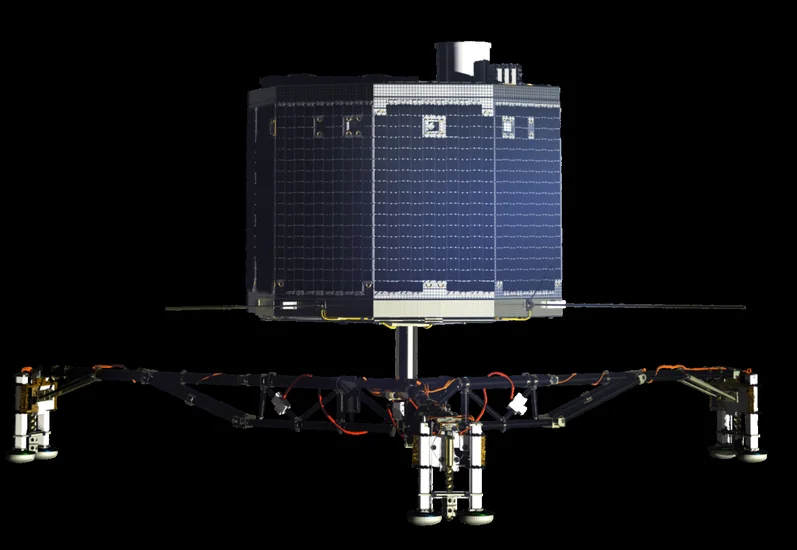
The European Space Agency’s Philae lander successfully reached the surface of Comet 67P/Churyumov-Gerasimenko after deployment from the Rosetta probe. This historic achievement marked humanity’s first successful comet landing.
The lander transmitted valuable scientific data about comet composition and structure. This mission provided crucial insights into the solar system’s formation and the origins of water on Earth.
Cultural and Arts Events on November 12
1961 – Terry Jo Duperrault Survives Bluebelle Massacre
Eleven-year-old Terry Jo Duperrault became the sole survivor of brutal murders aboard the ketch Bluebelle in the Bahamas. She spent four days alone on a life raft before rescue.
Her survival story captivated international media and inspired numerous books and documentaries. The tragic case highlighted maritime safety issues and became a landmark survival story.
1969 – Seymour Hersh Breaks My Lai Massacre Story
Independent investigative journalist Seymour Hersh published his groundbreaking exposé of the My Lai Massacre during the Vietnam War. His reporting revealed the systematic killing of Vietnamese civilians by American troops.
Hersh’s investigation sparked national outrage and intensified anti-war sentiment across America. This journalistic achievement earned him the Pulitzer Prize and changed public perception of the Vietnam conflict.
2001 – Britney Spears Conservatorship Ends
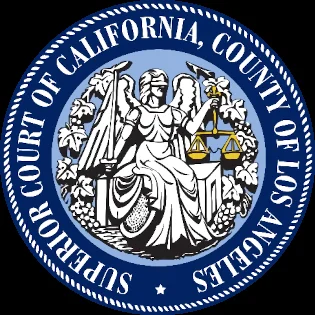
The Los Angeles Superior Court formally ended Britney Spears’ 14-year conservatorship, restoring her personal and financial autonomy. The decision concluded a highly publicized legal battle that had drawn worldwide attention.
The conservatorship’s termination marked a victory for disability rights advocates and celebrity autonomy. Spears’ case sparked broader discussions about conservatorship abuse and legal reform.
Religious and Social Events on November 12
1920 – Irish Republican Hunger Strike Ends
The Cork hunger strike by Irish republican prisoners ended after lasting several weeks and claiming three lives. The strike had protested British treatment of Irish political prisoners.
The hunger strike’s conclusion marked another chapter in Ireland’s struggle for independence. These sacrifices galvanized Irish republican sentiment and international support for Irish self-determination.
1991 – Santa Cruz Massacre in East Timor

Indonesian Army forces opened fire on student protesters in Dili, East Timor, killing numerous demonstrators in what became known as the Santa Cruz Massacre. The attack occurred during a peaceful memorial procession.
International condemnation of the massacre increased pressure on Indonesia’s occupation of East Timor. This tragic event accelerated the international campaign for East Timorese independence.
2015 – Beirut Suicide Bombings
Two suicide bombers detonated explosives in Bourj el-Barajneh, Beirut, killing 43 people and injuring over 200 others. The attack targeted a busy residential and commercial area.
The bombings highlighted Lebanon’s vulnerability to regional conflicts and terrorism. This tragedy occurred during a period of heightened tensions in the Middle East.
Business and Economic Events on November 12
1979 – Carter Halts Iranian Oil Imports
President Jimmy Carter ordered a complete halt to petroleum imports from Iran in response to the Tehran hostage crisis. This economic sanction targeted Iran’s primary source of foreign currency.
The oil embargo demonstrated American resolve during the hostage crisis. Carter’s decision contributed to domestic energy shortages and influenced the 1980 presidential election.
1982 – Yuri Andropov Becomes Soviet General Secretary
Yuri Andropov succeeded Leonid Brezhnev as General Secretary of the Soviet Communist Party’s Central Committee. His appointment marked the beginning of limited economic reforms in the Soviet Union.
Andropov’s leadership represented a generational shift in Soviet politics. His brief tenure initiated discussions about economic modernization that would continue under his successors.
1996 – Ramzi Yousef Convicted of World Trade Center Bombing
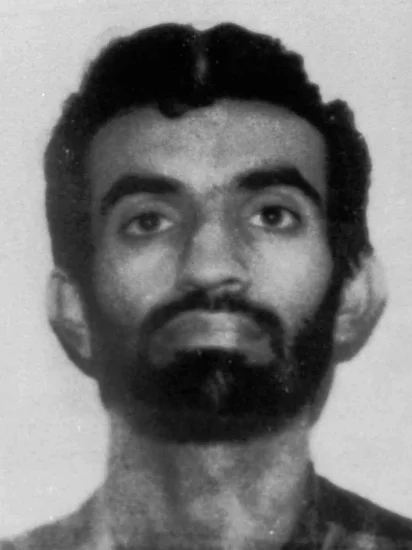
Ramzi Yousef was found guilty of masterminding the 1993 World Trade Center bombing that killed six people and injured over 1,000. His conviction marked a significant victory in America’s early fight against international terrorism.
The trial revealed the extent of international terrorist networks operating against American targets. Yousef’s conviction demonstrated the FBI’s growing capabilities in counterterrorism investigations.
Transportation and Infrastructure on November 12
1936 – San Francisco-Oakland Bay Bridge Opens
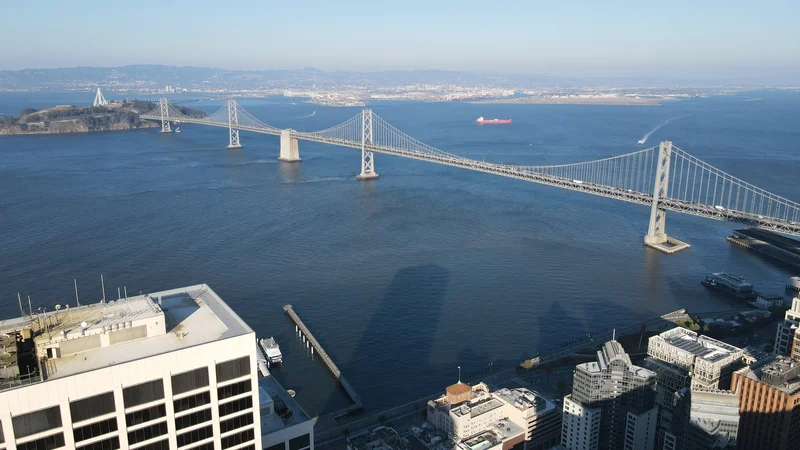
The San Francisco-Oakland Bay Bridge opened to traffic, connecting the two major cities across San Francisco Bay. This engineering marvel reduced travel time and transformed the region’s transportation networks.
The bridge’s opening sparked economic development throughout the Bay Area. Its construction demonstrated American engineering capabilities during the Great Depression era.
1954 – Ellis Island Ceases Operations
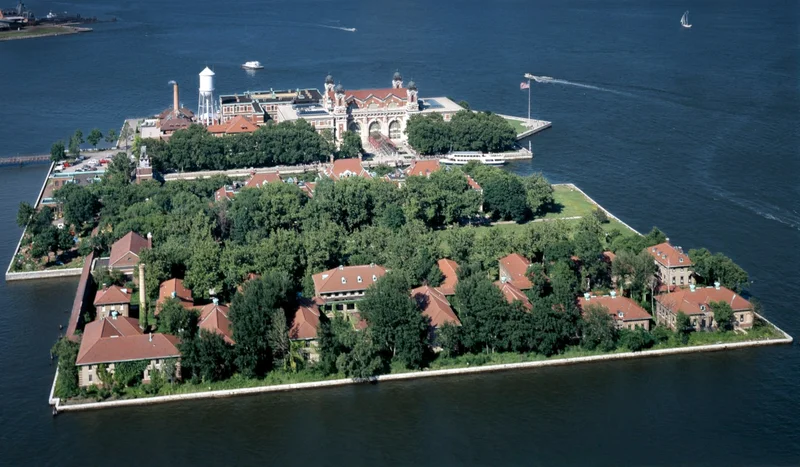
Ellis Island officially ended its operations as America’s primary immigration processing center after serving millions of immigrants for over six decades. The facility had processed approximately 12 million immigrants since 1892.
The island’s closure marked the end of an era in American immigration history. Ellis Island’s legacy as the “Gateway to America” remained deeply embedded in the nation’s cultural memory.
2003 – Shanghai Transrapid Sets Speed Record
The Shanghai Transrapid maglev train set a new world speed record of 501 kilometers per hour for commercial railway systems. This achievement demonstrated the potential of magnetic levitation technology.
The record-breaking run showcased China’s commitment to advanced transportation infrastructure. The Shanghai Transrapid remains the world’s fastest commercial maglev train in regular operation.
Sports and Recreation on November 12
1958 – First Ascent of El Capitan’s Nose
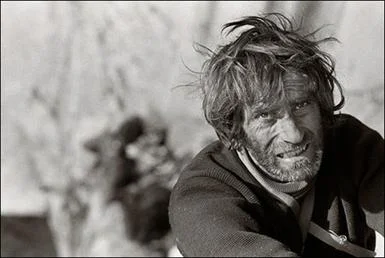
Rock climber Warren Harding led a team to complete the first ascent of The Nose route on El Capitan in Yosemite Valley. This achievement required multiple days of technical climbing on the massive granite face.
The successful climb established The Nose as one of the world’s most famous rock climbing routes. Harding’s accomplishment inspired generations of climbers and advanced big wall climbing techniques.
1970 – Oregon’s Exploding Whale Incident
The Oregon Highway Division attempted to dispose of a beached sperm whale using dynamite, creating the infamous “exploding whale” incident. The explosion scattered whale remains across a wide area, damaging nearby vehicles.
This bizarre event became a legendary example of government mismanagement and poor decision-making. The incident achieved cult status through television coverage and early internet sharing.
1999 – Düzce Earthquake Strikes Turkey

A devastating 7.2 magnitude earthquake struck northwestern Turkey, killing at least 845 people and injuring nearly 5,000 others. The earthquake caused widespread destruction in the Düzce province.
The disaster highlighted Turkey’s vulnerability to seismic activity along major fault lines. International rescue teams and aid organizations responded quickly to assist with recovery efforts.
Notable Births on November 12
1929 – Grace Kelly Born

Grace Kelly was born in Philadelphia, Pennsylvania, destined to become both a Hollywood icon and European royalty. Her natural elegance and acting talent would make her one of cinema’s most beloved stars.
Kelly’s successful acting career included starring roles in Alfred Hitchcock films. She later became Princess Grace of Monaco, embodying glamour and sophistication on the international stage.
1934 – Charles Manson Born

Charles Manson was born in Cincinnati, Ohio, who would later become one of America’s most notorious cult leaders. His early life was marked by abandonment and criminal behavior.
Manson’s influence over his followers led to the shocking Tate-LaBianca murders in 1969. His crimes and trial became symbols of the dark side of 1960s counterculture.
1945 – Neil Young Born

Neil Young was born in Toronto, Canada, becoming one of rock music’s most influential singer-songwriters. His distinctive voice and guitar style defined folk-rock and grunge movements.
Young’s prolific career spans over five decades with both solo work and band collaborations. His music continues to influence new generations of artists and activists.
1961 – Nadia Comăneci Born
Nadia Comăneci was born in Romania, destined to become gymnastics’ most perfect performer. Her dedication and natural ability revolutionized women’s competitive gymnastics.
Comăneci scored the first perfect 10 in Olympic gymnastics history at the 1976 Montreal Olympics. Her achievements inspired countless young gymnasts worldwide and elevated the sport’s popularity.
1980 – Ryan Gosling Born

Ryan Gosling was born in London, Ontario, Canada, becoming one of Hollywood’s most versatile actors. His early career in television led to acclaimed dramatic and musical film roles.
Gosling’s performances in films like “La La Land” and “The Notebook” established him as a leading man. His acting range encompasses drama, comedy, and musical genres with equal skill.
1982 – Anne Hathaway Born

Anne Hathaway was born in Brooklyn, New York, developing into one of Hollywood’s most accomplished actresses. Her classical training and natural charisma opened doors to diverse roles.
Hathaway’s career includes Academy Award-winning performances in both comedies and dramas. Her versatility has made her one of the most sought-after actresses of her generation.
Notable Deaths on November 12
1916 – Percival Lowell Dies

Percival Lowell, the American astronomer who popularized the idea of canals on Mars, died at age 61. His observations and theories about Martian civilization captured public imagination despite scientific skepticism.
Lowell’s work laid important groundwork for planetary astronomy and the search for extraterrestrial life. His Flagstaff observatory continued advancing astronomical research long after his death.
1981 – William Holden Dies

William Holden, the Academy Award-winning American actor, died at age 63 in his Santa Monica apartment. His career spanned four decades with memorable roles in classic Hollywood films.
Holden’s performances in “Sunset Boulevard” and “The Bridge on the River Kwai” established him as a major star. His death marked the end of an era in American cinema.
1994 – Wilma Rudolph Dies

Wilma Rudolph, the American sprinter who overcame childhood polio to become an Olympic champion, died at age 54. Her athletic achievements broke barriers for women and African Americans in sports.
Rudolph’s three gold medals at the 1960 Rome Olympics made her an international icon. Her legacy inspired countless athletes to overcome physical and social obstacles.
2018 – Stan Lee Dies
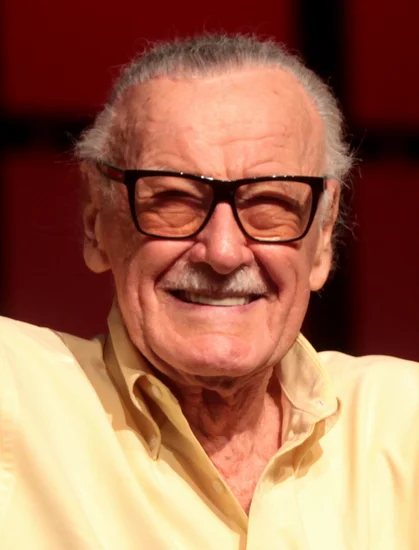
Stan Lee, the legendary comic book writer and Marvel Comics creator, died at age 95 in Los Angeles. His creative genius birthed iconic superheroes that defined American popular culture.
Lee’s characters including Spider-Man, the X-Men, and the Avengers became global phenomena. His influence on entertainment extends far beyond comics into films, television, and merchandise.
Holidays and Observances on November 12
Constitution Day in Azerbaijan
Azerbaijan observes Constitution Day on November 12, commemorating the adoption of the country’s current constitution. This national holiday celebrates the legal foundation of Azerbaijan’s independence and democratic governance.
The constitution established Azerbaijan as a secular republic with guaranteed civil rights. Citizens participate in civic ceremonies and educational programs highlighting constitutional principles.
World Pneumonia Day
World Pneumonia Day raises global awareness about pneumonia’s impact on public health, particularly affecting children and elderly populations. Healthcare organizations worldwide promote prevention, treatment, and vaccination programs.
The observance emphasizes the importance of early detection and proper medical care. International health agencies coordinate efforts to reduce pneumonia-related deaths through education and improved healthcare access.
Father’s Day in Indonesia

Indonesia celebrates Father’s Day on November 12, honoring fathers and father figures throughout the country. Families gather to express gratitude for paternal guidance and support.
The celebration includes special meals, gift-giving, and family activities recognizing fathers’ contributions. Schools and communities organize events highlighting the importance of fatherhood in Indonesian society.
